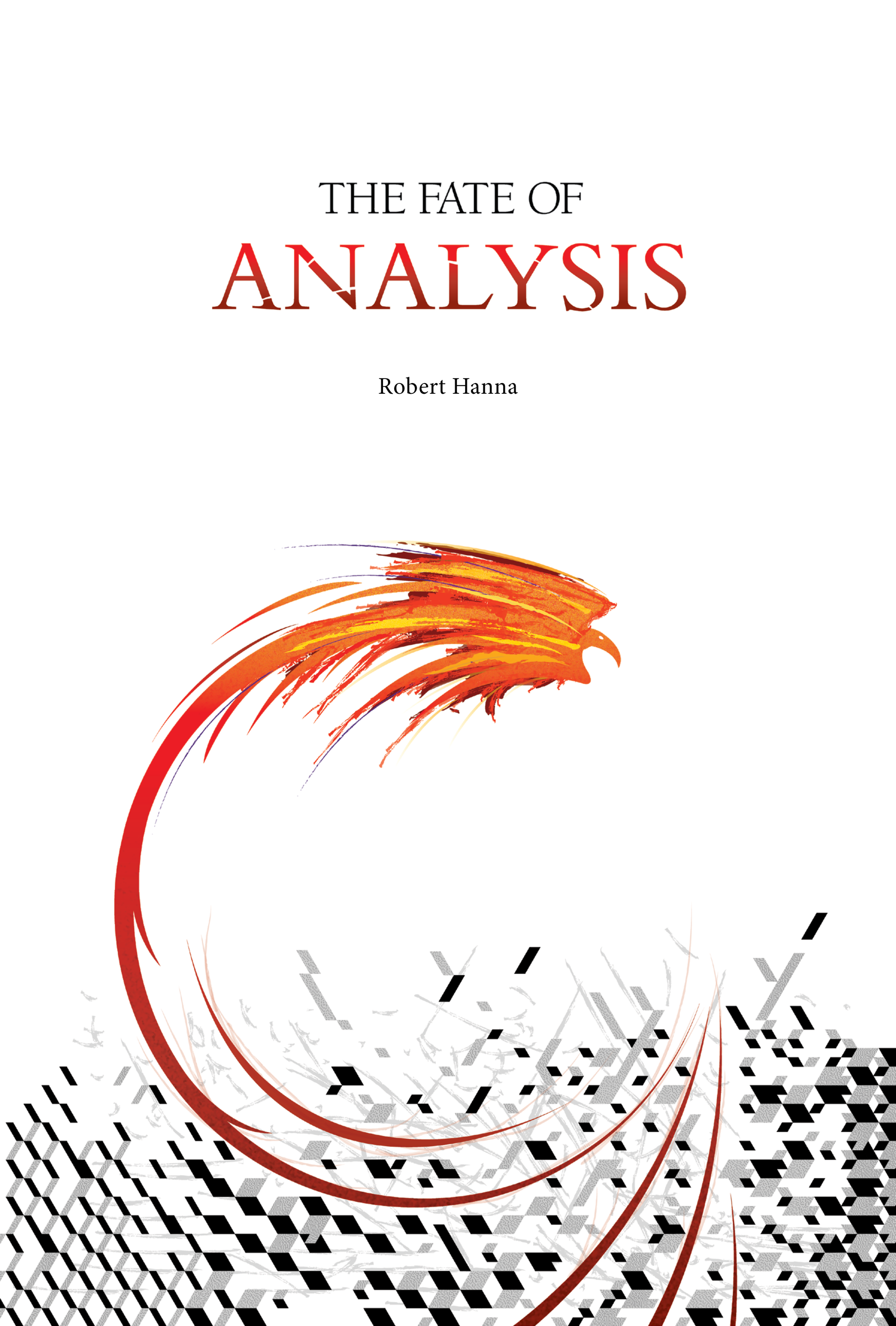ABSTRACT (used as an adjective): an entity that’s not uniquely located in space or time, and doesn’t literally belong to any mental or physical causal processes.
Controversy: Classical “platonic” definitions of abstractness require existence or subsistence outside of space and time, which entails causal irrelevance or inertness.
This definition of abstractness, however, does not require extra spatiotemporality, nor does it entail causal irrelevance.
For example, according to this definition of abstractness, the Equator is abstract, even though you can actually cross it; and immanent structures of all kinds are also abstract, for example, social institutions, although they are obviously all causally relevant and sometimes even causally efficacious.
ELABORATION
It’s plausibly arguable that platonically abstract objects are neither causally relevant nor causally efficacious.
If something X is platonically abstract, then it is altogether outside of space, time, and the natural causal order.
Hence it is very difficult to see how X could have any informational bearing on any spatial, temporal, or natural-causal individual, except by means of some metaphysically mysterious connection.
Jaegwon Kim’s well-known “causal pairing problem” for Cartesian substance dualism[1] can be generalized to cover the supposed causal relevance of platonically abstract objects.
In a nutshell, Kim persuasively argues that since according to classical Cartesian dualist interactionism, distinct mental substances are immaterial and non-spatial, but at the same time real causal relations arguably require the spatiotemporal individuation of causes and effects, then it seems impossible for dualist interactionism to account for the “causal pairing” of real causes and real effects.[2]
More precisely, however, here’s how he formulates the problem:
Let us begin with a simple example of physical causation: two guns, A and B, are simultaneously fired, and this results in the simultaneous death of two persons, Adam and Bob. What makes it the case that the firing of A caused Adam’s death and the firing of B caused Bob’s death, and not the other way around? What are the principles that underlie the correct and incorrect pairings of cause and effect in a situation like this? We can call this “the causal pairing problem,” or “the pairing problem” for short…. Turn now to a situation involving nonphysical Cartesian souls as causal agents. There are two souls, A and B, and they perform an identical mental act at time t, as a result of which a change occurs in material substance M shortly after t. We may suppose that the mental actions of the kind involved generally cause physical changes of the sort that happened in M, and, moreover, that in the present case it is soul A’s action, not soul B’s, that caused the change in M. Surely, such a possibility must exist. But ask: What relation might serve to pair soul A’s action with the change in M, a relation that is absent in the case of soul B’s action and the change in M? That is, evidently no spatial relations can be invoked to answer this question, for souls are not in space and are not able to bear spatial relations to material things. Soul A cannot be any “nearer” to material object M, or more propitiously “oriented” in relation to it, than soul B is. Is there anything that can do for souls what space, or a network of spatial relations, does for material things?[3]
Then after considering several possible candidates for being the pairing relation between immaterial Cartesian souls and their putative causal effects—i.e., intentionality, causal chains, and somehow locating immaterial souls in space—Kim concludes that the answer to his leading critical question is no, and also that
[t]he more we think about causation, the clearer becomes our realization that the possibility of causation between distinct objects depends on a shared space-like coordinate system in which these objects are located, a scheme that individuates objects by their “locations” in the scheme.[4]
Thus Kim.
Now suppose that X is platonically abstract, that A and B are distinct tokens of the same general type of real physical object existing in causally efficacious space and time, and that X is supposed to have causal relevance for A but not for B.
What rules out the possibility that X instead has causal relevance for B but not for A?
The challenge is to find a non-metaphysically-mysterious reason for causal-relevance-pairing X with A as opposed to causal-relevance-pairing X with B.
And if Kim is right, then there is no such non-metaphysically-mysterious reason when X is either a Cartesian soul or a platonically abstract entity.
Hence there are no causally relevant Cartesian souls or platonically abstract entities.
Now what about causal efficacy?
Since causal efficacy necessarily includes causal relevance but adds to it whatever is further required for real causal power, then it follows that if a critical response that uses a version of Kim’s causal pairing problem is effective against the causal relevance of platonically abstract objects, then an argument that uses a version of Kim’s causal pairing problem against the causal efficacy of platonically abstract objects will be equally or even more effective.
This is because the causal pairing problem is significantly magnified by the added dimension of causal power.
Not only is there a seemingly insurmountable challenge for the defender of the causal relevance of platonically abstract objects to find a non-metaphysically-mysterious reason for causal-relevance-pairing X with A as opposed to causal-relevance-pairing X with B.
But now there is an even more stringent challenge for the defender of the causal efficacy of platonically abstract objects to find a non-metaphysically-mysterious reason for causal-efficacy-pairing X with A as opposed to causal-efficacy-pairing X with B.
For if, prima facie, any metaphysical reason that would suffice to determine pairing in the causal relevance case, which involves only the determination of informational characterizations and property-applications, would be mysterious, then any metaphysical reason that would suffice to determine pairing in the causal efficacy case, which also involves the determination of causal power, even over and above informational characterizations and property-applications, would be significantly more mysterious.
Hence there are no causally efficacious platonically abstract entities.
More generally, I think that we must reject the classical platonic conception of abstractness, which says that something is abstract if and only if it has a mind-independent, substantial existence in a separate, non-spatiotemporal, non-natural, non-sensory, causally irrelevant, and causally inert realm.
And in its place, I’ll put a non-platonic conception of abstractness, which says: X is abstract if and only if X is not uniquely located and realized in actual spacetime, and X is concrete otherwise.
By "X is uniquely located and realized in actual spacetime,” I mean that X is exclusively embodied or incarnated at and exclusively embodied or incarnated in, and thereby fully occupies, one and only one actual spacetime volume.
Then this conception of abstractness is saying that something is concrete if and only if it is uniquely located and realized in actual spacetime, and abstract otherwise.
More specifically, according to this conception, whatever is either multiply located, multiply realized, non-actual, or non-spatiotemporal will count as abstract.
What makes this conception of abstractness non-platonic, above all, is its comparatively liberal approach to what will count as abstract.
It in fact includes the platonic conception of abstractness, under the special constraint of what I call radical agnosticism about platonically abstract objects in particular and noumenal objects in the Kantian sense (aka “things-in-themselves,” i.e., non-spatiotemporal objects that possess all their uniquely identifying properties in a “lonely” way, essentially independently of cognizers like us, hence also non-phenomenally) more generally, whereby we know a priori that we cannot know whether they exist or do not exist.
But this non-platonic conception of abstractness is also significantly less restrictive than the platonic conception, robustly non-dualistic, and fully compatible with causal relevance.
In addition to its highly problematic assumption that there are humanly knowable objects that are not only causally inert but also completely causally irrelevant, what the platonic conception mistakenly assumes is that multiple location, non-actuality, and non-spatiotemporality are all necessarily equivalent with one another, so that platonic abstractness includes them all as necessarily conjoined features.
But in fact, they are logically independent features of things: hence the correct, non-platonic conception of abstractness includes them disjunctively, not conjunctively.
Moreover, the non-platonic conception of abstractness is also robustly non-dualistic, because, for example, the Equator (as multiply located and multiply realized) plausibly counts as abstract according to it.
Yet the Equator obviously still actually exists in the natural spacetime world, since I and many other people, vehicles, and non-human animals have actually crossed it.
Furthermore, this non-platonic conception of abstractness is thereby also fully compatible with causal relevance, since, for example, functional organizations (say, computer programs or economic systems) all count as abstract according to it, and all such organizations, when implemented, are causally relevant, even if they are not themselves causally efficacious.
Abstract (used as a verb): the mental act or process of isolating or recognizing an abstract entity via perceiving, imagining, or remembering a concrete entity; also sometimes employed as a synonym for “conceptualize.”

If you feel so inclined, please feel free to show your support for Robert via his Patron page (https://www.patreon.com/philosophywithoutborders) or purchase his recently published book, The Fate of Analysis (2021).

The Fate of Analysis (2021)
Robert Hanna’s twelfth book, The Fate of Analysis, is a comprehensive revisionist study of Analytic philosophy from the early 1880s to the present, with special attention paid to Wittgenstein’s work and the parallels and overlaps between the Analytic and Phenomenological traditions.
By means of a synoptic overview of European and Anglo-American philosophy since the 1880s—including accessible, clear, and critical descriptions of the works and influence of, among others, Gottlob Frege, G.E. Moore, Bertrand Russell, Alexius Meinong, Franz Brentano, Edmund Husserl, The Vienna Circle, W.V.O. Quine, Saul Kripke, Wilfrid Sellars, John McDowell, and Robert Brandom, and, particularly, Ludwig Wittgenstein—The Fate of Analysis critically examines and evaluates modern philosophy over the last 140 years.
In addition to its critical analyses of the Analytic tradition and of professional academic philosophy more generally, The Fate of Analysis also presents a thought-provoking, forward-looking, and positive picture of the philosophy of the future from a radical Kantian point of view.







